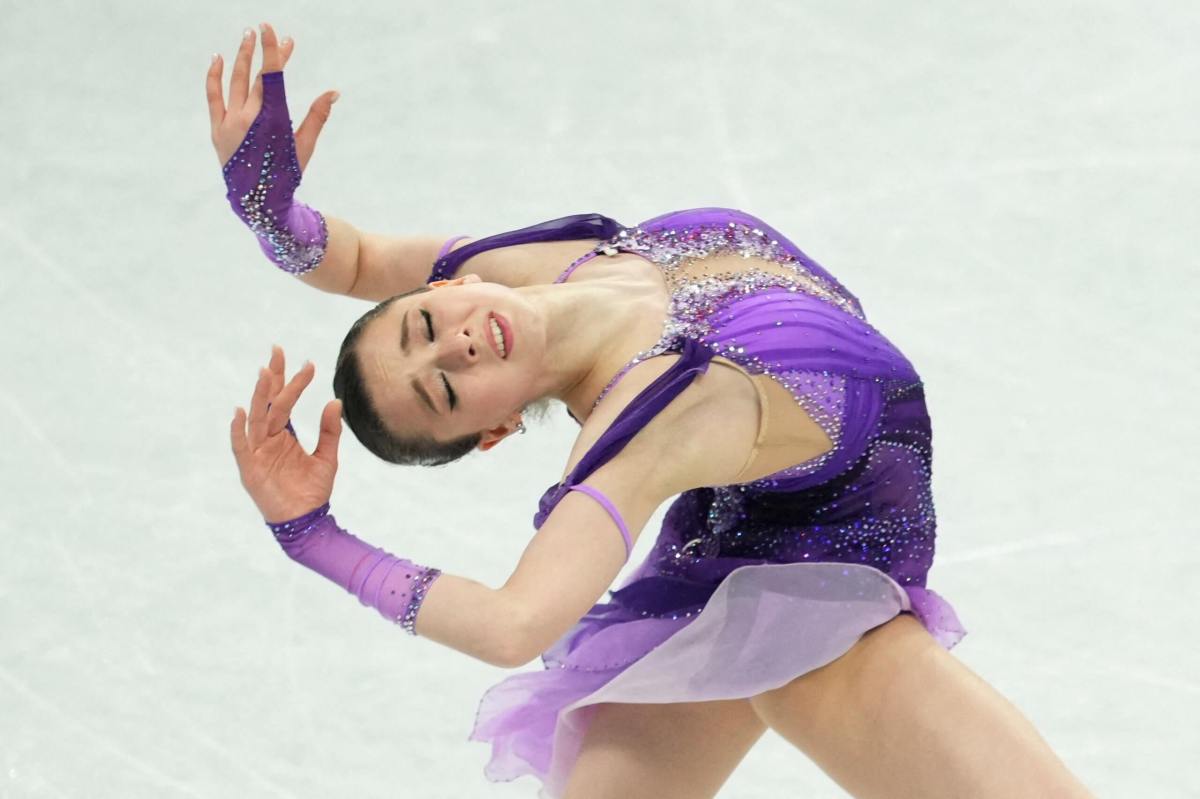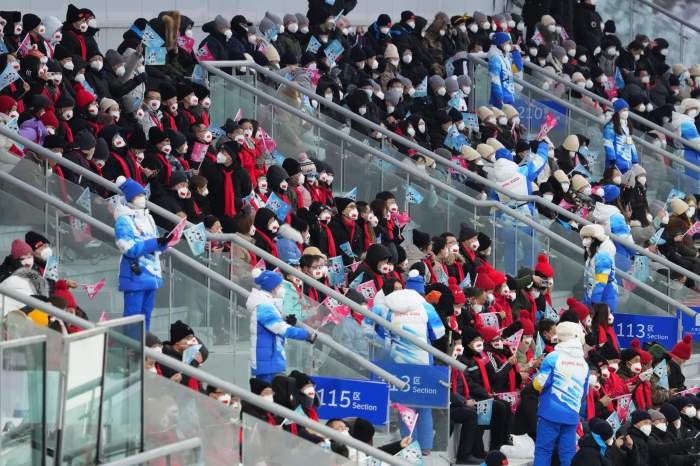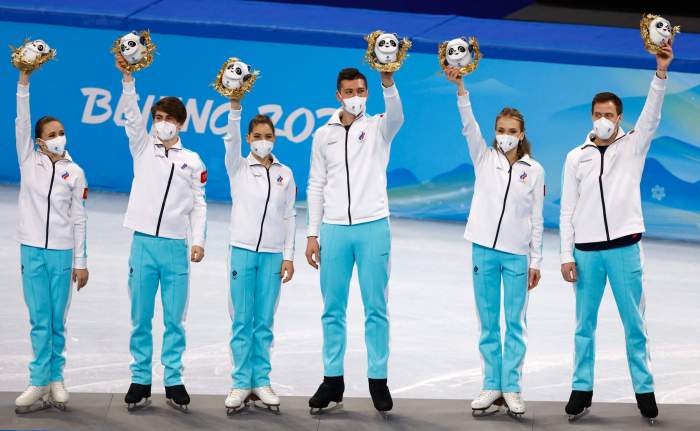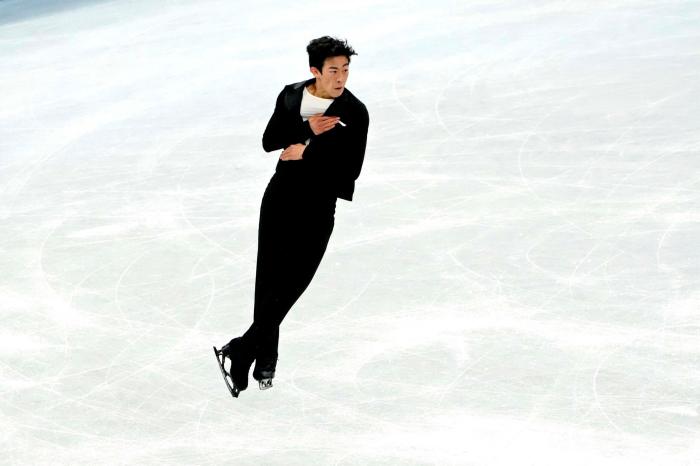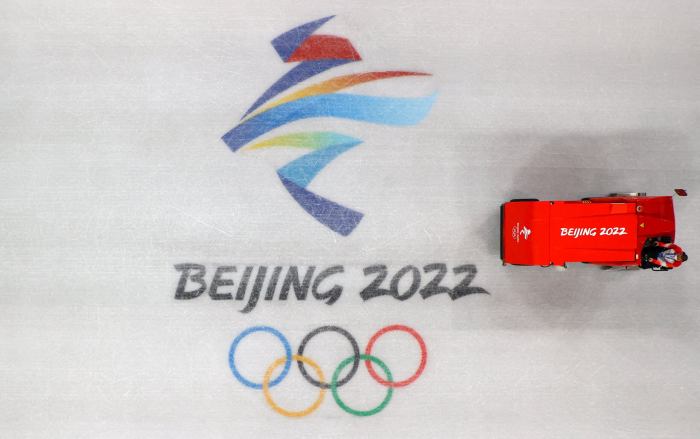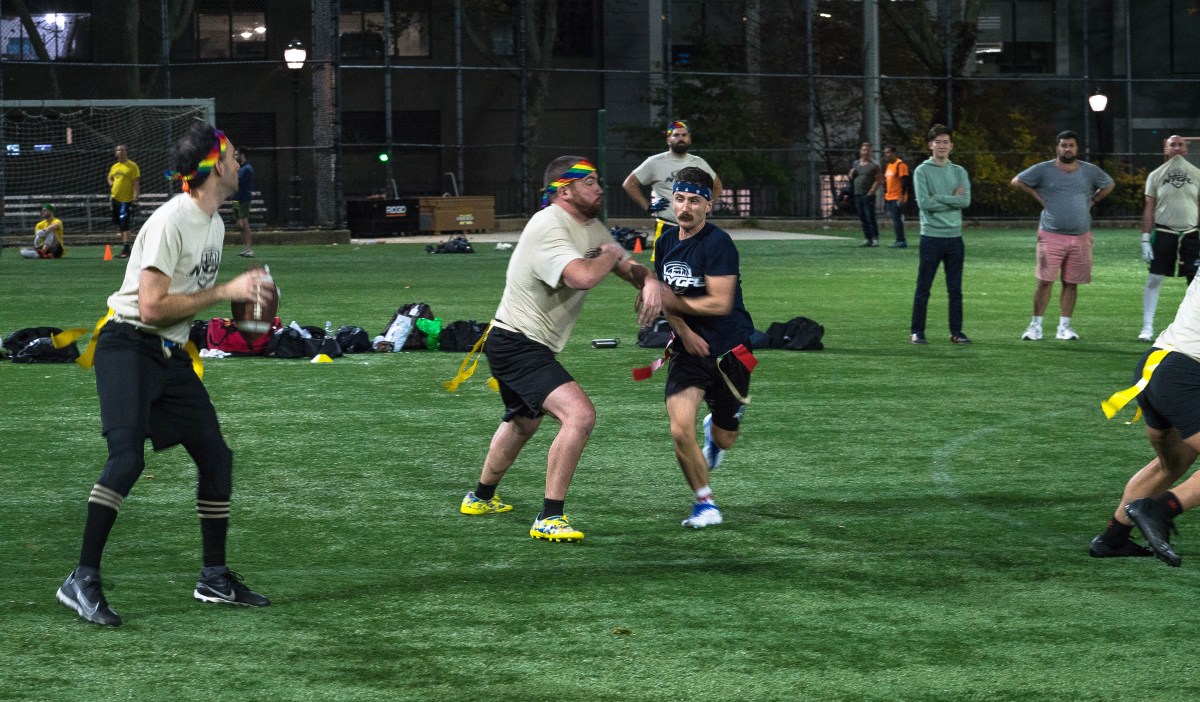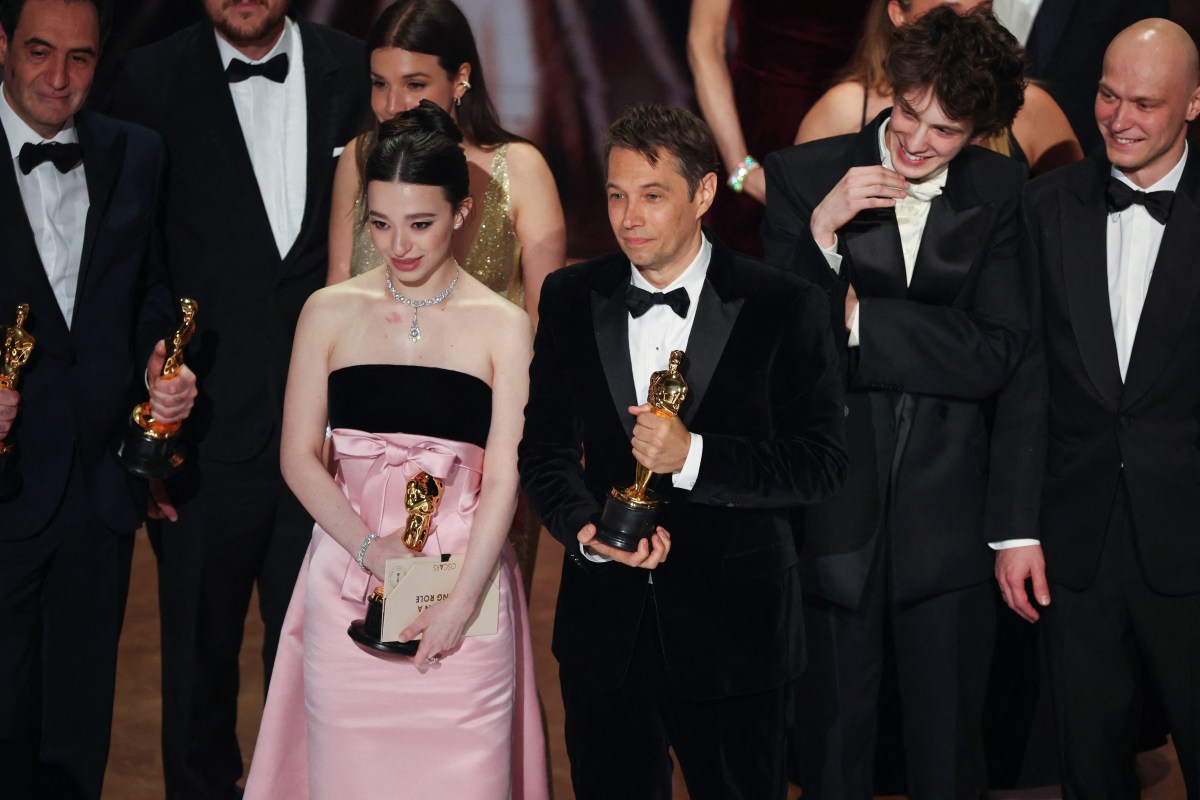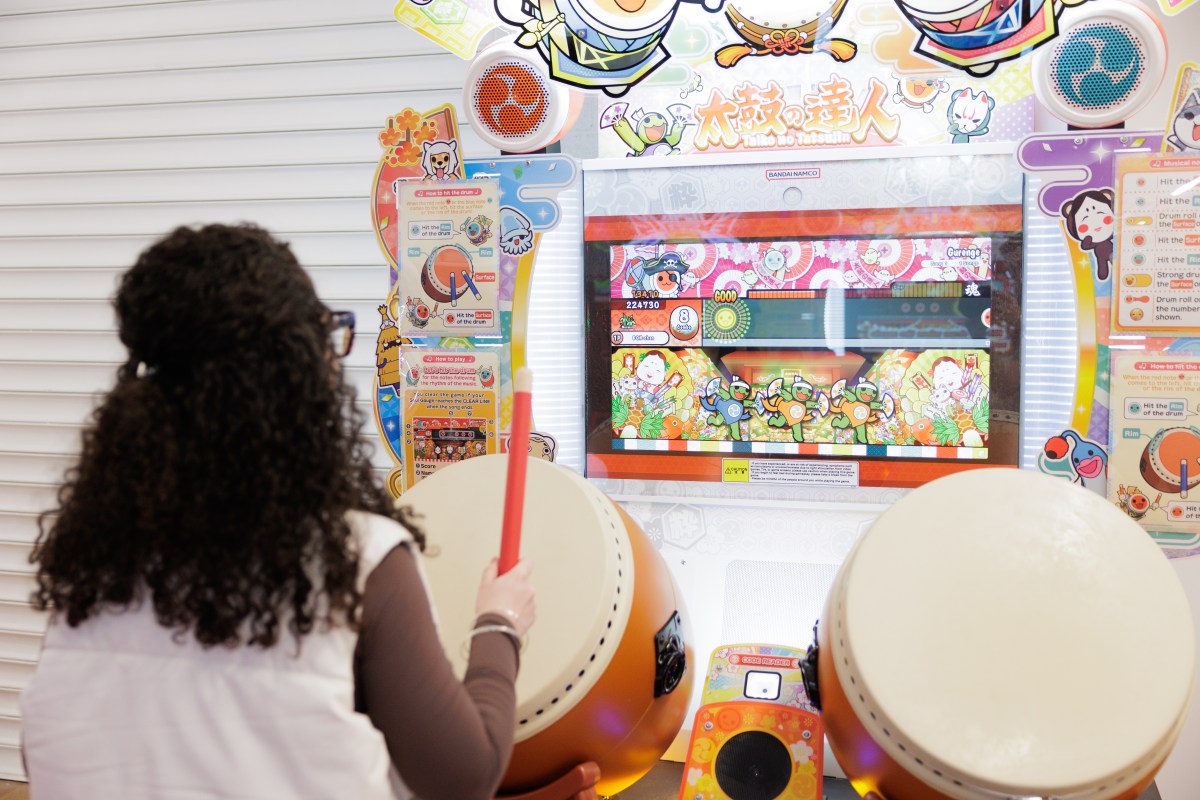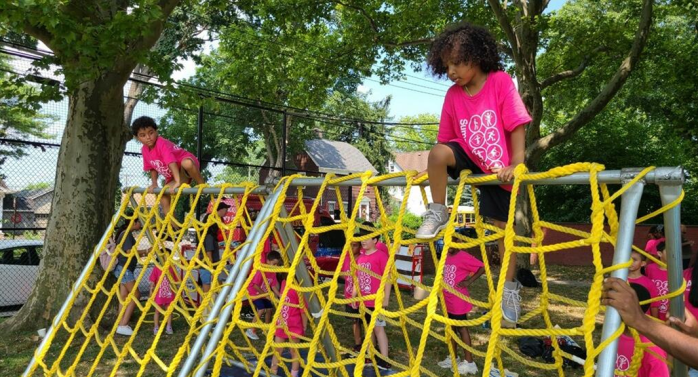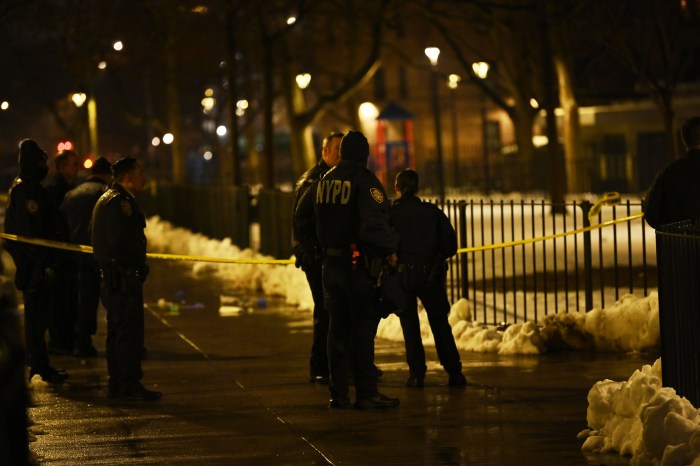Russian figure skater Kamila Valieva on Tuesday shrugged off her Olympic doping scandal to dominate the women’s competition with an emotional performance that put her ahead in the hunt for a gold medal that is unlikely to be awarded at the Beijing Games.
The 15-year-old fought back tears as she completed the 2 minute and 40 second routine, watched by millions around the world, her music almost drowned out by the clicking of cameras.
No medals will be awarded at the Winter Games for the women’s event if Valieva finishes in the top three of the two-day competition, which resumes on Thursday.
The teenager, who was cleared to compete by sport’s top court despite testing positive for a banned heart drug, will not have her case resolved before the Beijing Games end.
Valieva tested positive at her national championships on Dec. 25 but the result was not revealed until Feb. 8, after she had already competed at the Beijing Games in the team event.
Earlier on Tuesday, an Olympic official said Valieva’s defense was that there had been a mix up with her grandfather’s heart medication.
The teenager’s case has prompted uncomfortable questions about figure skating, and whether or not the minimum age for competitors – 15 — needs to be raised.
American Mariah Bell skated in the women’s singles on Tuesday, and as she left the ice took a swipe at minors competing on the biggest stage.
“I absolutely believe that there should be an age limit,” the 25-year-old said.
“I know for me, personally, I know when you’re growing there’s a lot of changes happening. There are minors competing… that’s a whole different thing.”
The nine skaters who featured for the U.S. and the seven who competed for Japan in the team event will go home without receiving their medals because of Valieva’s drug case. The United States finished behind the Russian Olympic Committee (ROC) with Japan third.
“My heart goes out to the rest of my team mates and hopefully we’ll find some way to celebrate together,” U.S. ice dancer Madison Hubbell said.
On Tuesday night, Valieva had been expected to execute three high-flying triple jumps, but she stumbled on the opening triple Axel. Her score of 82.16 way was below the 90.18 score she got at the team event.
Still, it was enough to put her ahead of fellow Russian Anna Shcherbakova, the world champion, on 80.20, and third-placed Kaori Sakamoto, from Japan, on 79.84 going into Thursday’s free skate.
CHINA WINS
China’s U.S.-born figure skater Zhu Yi did not qualify for the free skate, but she earned rousing applause from hometown fans when she came back to the ice with a smile on Tuesday.
After her error-filled performance knocked China to fifth place from third in the team event, Zhu became the target of online criticism about her performance, as well as for being selected over another Chinese skater.
“I guess it was a little bit of a redemption,” Zhu said on Tuesday. “I think I skated much better than the team event. I feel more at ease and try to enjoy the game, that’s why I smiled.”
Teen sensation Su Yiming gave himself an early 18th birthday present by grabbing gold in the men’s snowboarding Big Air event, marking China’s first ever Olympic title in snowboard and sixth gold medal in Beijing.
“I have many different dreams but today’s gold medal is the biggest dream I have ever had since I was young,” Su said after his podium finish.
Another home favourite, Eileen Gu, had her sights set on winning another gold in Beijing after her earlier triumph in the Big Air but ended up snatching silver in the women’s freeski slopestyle.
China’s “Snow Princess” went all out from the beginning, landing a clean and controlled first run, but hit the deck on her second try, forcing her to sit on her skis to take a breath.
The fall piled the pressure on Gu ahead of her third and final run and while she earned 86.23 it was not enough to top Mathilde Gremaud’s best of 86.56, with Estonia’s Kelly Sildaru taking bronze with 82.06.



